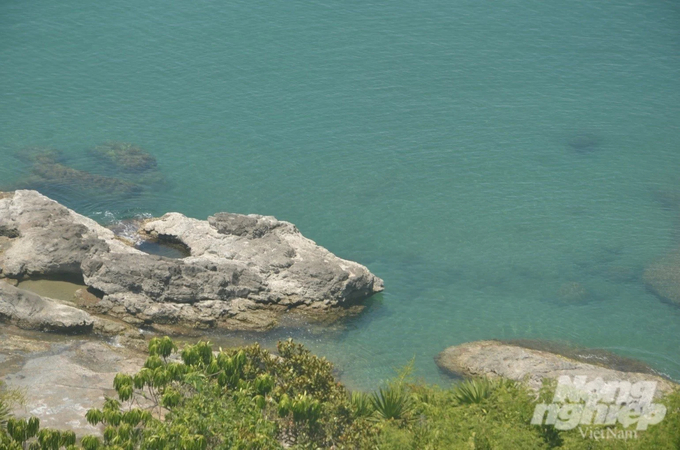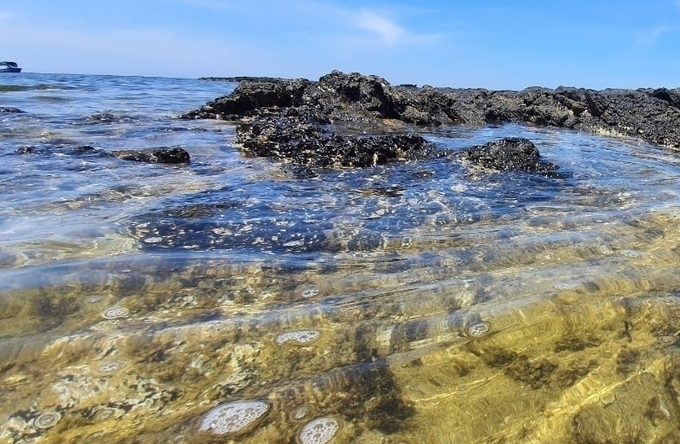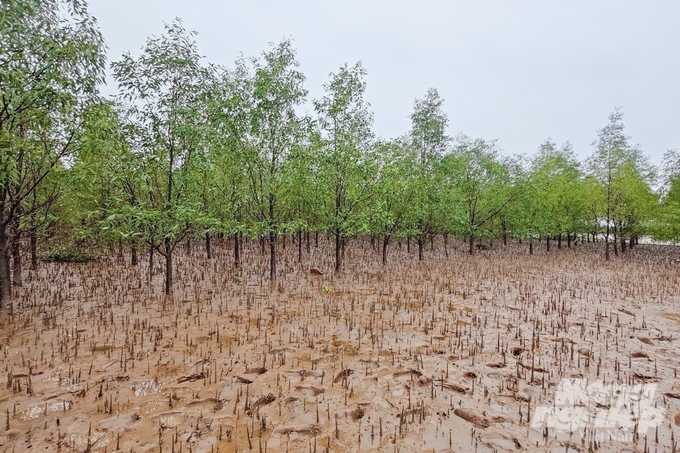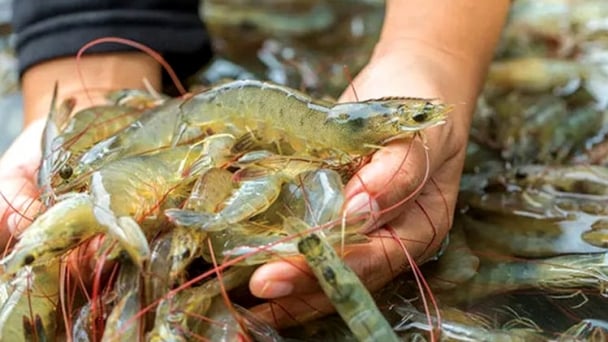May 23, 2025 | 18:22 GMT +7
May 23, 2025 | 18:22 GMT +7
Hotline: 0913.378.918
May 23, 2025 | 18:22 GMT +7
Hotline: 0913.378.918
Formed in February 2011, the Blue Carbon Scientific Working Group provides the scientific foundation for the Blue Carbon Initiative by synthesizing current and emerging science on blue carbon and by providing a robust scientific basis for coastal carbon conservation, management and assessment. Priority research of the Scientific Working Group functions in close partnership with the Initiative’s Policy Working Group.
The Working Group meets regularly and consists of experts in coastal carbon science, carbon assessment, remote sensing and international climate change policy. The Working Group meets in blue carbon-rich countries and collaborates closely with local experts and government officials to identify or expand in-country activities supporting the conservation and restoration of blue carbon ecosystems.

The green seagrass carpet along the beach contributes to absorbing the carbon released, which is very important for the ecosystem. Photo: Hai Nam.
According to a report by the Blue Carbon Scientific Working Group, much of the carbon emitted is thousands of years old, and other processes in the ecosystem do not balance carbon emissions as quickly as possible. quickly enters the ocean and atmosphere. With large amounts of carbon in coastal ecosystems, these emissions replenish the earth's ecosystem.
Seagrass, tidal marshes and mangroves are being degraded and destroyed rapidly along the world's coastlines.
Active and effective measures are needed to protect the large and vulnerable carbon pools stored in these systems and to restore and re-establish their carbon sequestration capacity.
Based on existing scientific, analytical, and technological data, efforts are needed to collect and evaluate data systematically and consistently, with specific activities:
Develop coastal carbon inventory and accounting methods to facilitate their inclusion in agreements that promote conservation and effective management of coastal systems;
Conduct carbon inventories in coastal areas with high carbon storage and absorption capacity. Includes areas with existing and high carbon emission risks;

Community monitoring, management interventions and providing incentives to maintain carbon-rich systems are of international concern. Photo: Hai Nam.
Conduct targeted research and monitoring to obtain accurate figures on greenhouse gas emissions resulting from the degradation, conversion and destruction of all relevant coastal ecosystems;
Establish a network of field projects that demonstrate (1) carbon storage capacity in coastal systems and emissions resulting from degradation, conversion, and destruction of those systems and (2) feasibility of community monitoring approaches, management interventions and providing incentives to maintain carbon-rich systems;
Conduct numerical, quantitative research on the consequences of different coastal management and restoration approaches on carbon storage and emissions in coastal and nearshore marine ecosystems;
Develop standards and methods to translate remote sensing measurements into accurate estimates of carbon in coastal ecosystems, as remote sensing is currently the only method to effectively map and monitor lagoons, mangroves, and tidal marshes at regional and global scales.
Knowledge about carbon reserves, absorption potential, and emissions from degraded or converted coastal ecosystems is problematic for localities and regions and requires more scientific and objective management measures.
Identify and mitigate the causes of degradation and destruction of high-carbon coastal systems.

Xuan Thuy National Park with a mangrove forest system covering thousands of hectares. Photo: Tung Dinh.
It focuses on the conversion or loss of coastal ecosystems due to urban development, agriculture, and aquaculture; construction of artificial features that impair natural tidal flooding and other processes leading to wetland degradation, loss of carbon sequestration, and release of stored carbon (e.g., roads, levees, port development, etc.);
Changes in river basins lead to changes in water and sediment flows. For example, deforestation on land can increase the sediment load that covers vulnerable seagrass areas downstream. Conversely, infrastructure that diverts sediment from coastal marshes and mangroves may reduce the deposition of carbon-rich sediment as sea levels rise;
Pollutants and nutrient runoff from land lead to the degradation of seagrass systems because nitrogen enrichment in wetlands reduces underground carbon sequestration, the marsh's ability to keep up sea levels and increased release of nitrous oxide, a very potent greenhouse gas;
Unsustainable production of wood and firewood/overexploitation or destruction of seagrass beds due to dredging, trawling, boat movements, and other activities require strict management measures from coastal localities.
Conservation International, the International Union for Conservation of Nature (IUCN), and the Intergovernmental Oceanographic Commission, comprising 22 scientists worldwide, established the International Working Group on Blue Carbon. Funding for the team was provided by the Waterloo Foundation, the National Aeronautics and Space Administration (NASA), and the United Nations Environment Program (UNEP).
Translated by Huong Giang

(VAN) WWF, GIZ, IUCN, UNDP call for biodiversity conservation and sustainable development must be regarded as a unity in strategies for a green future.

(VAN) On celebration of International Day for Biological Diversity, Deputy Minister Nguyen Quoc Tri called for practical actions to address nature and biodiversity conservation.

(VAN) Dr. Hoang Thi Thanh Nhan – Deputy Director of the Nature and Biodiversity Conservation Agency – highlighted this on the International Day for Biological Diversity, May 22, 2025.
![Ho Chi Minh city adapts to climate change: [2] Accelerating action](https://t.ex-cdn.com/nongnghiepmoitruong.vn/608w/files/chiqk/2025/05/22/4024-4220-bien-doi-khi-hau-1-100626_766.jpg)
(VAN) Clearly recognizing the challenges posed by climate change, Ho Chi Minh city has swiftly shaped its policies and implemented practical solutions to adapt.

(VAN) Rice straw is no longer just a discarded byproduct, but it is becoming a green resource that helps farmers in the Mekong Delta reduce emissions and promote circular, sustainable agriculture.

(VAN) Other Effective Area-based Conservation Measures (OECMs) are solutions that contribute effectively to achieving the goals of the Kunming–Montreal Global Biodiversity Framework.

(VAN) A study assessing the carbon footprint of whiteleg shrimp farming in China shows the potential for carbon emission reduction through the use of renewable energy.